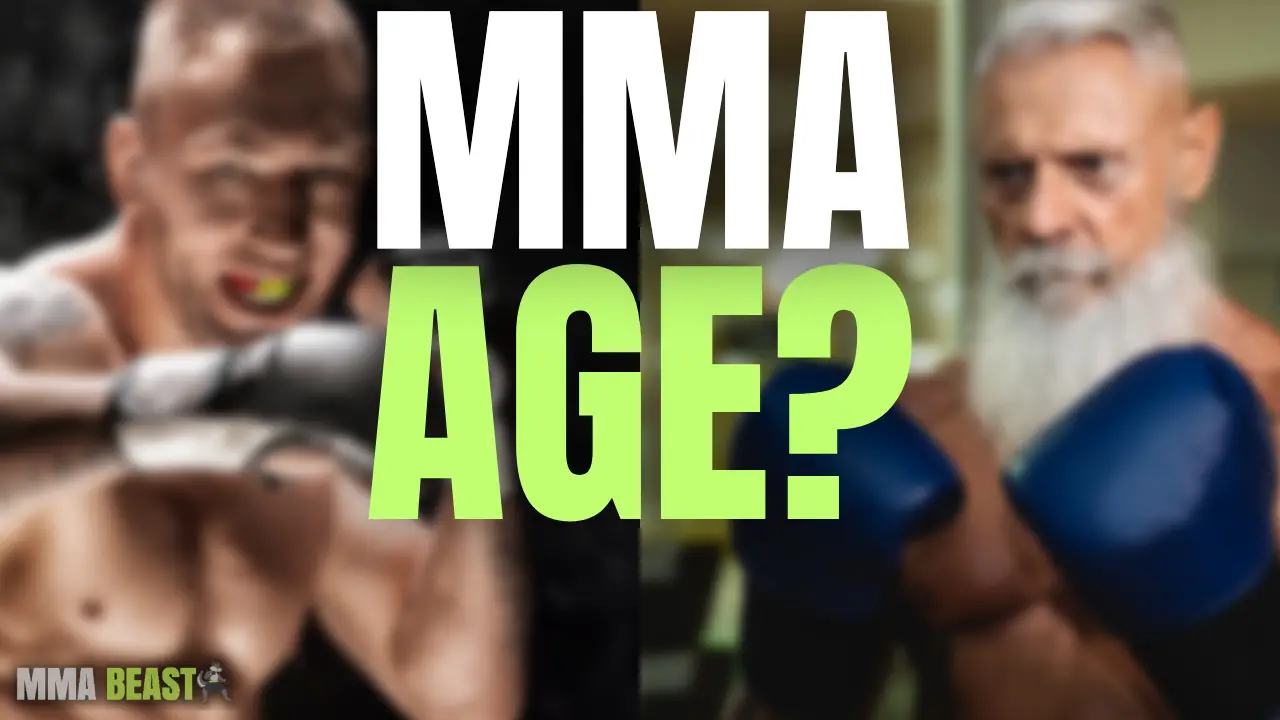
With the surging popularity of MMA as a professional combat sport there have been more and more concerns as to the impact on Fighting Athlete’s health. Many who both watch and partake in the sport are concerned specifically about: Does MMA Cause Brain Damage? The truth is you can get brain damage in MMA, however it is far more unlikely to get Brain Damage in MMA versus getting Brain Damage in other combat sports such as boxing. This is because in MMA there are countless ways to defeat your opponent that don’t involve head injuries.
As a result this means that you take less knocks to the head than you would in other combat sports. That being said you still do take blows to the head and its important that you train with the correct headgear to prevent injuries. In this article, we will delve into the question, “Does MMA Cause Brain Damage?” and explore the scientific evidence and expert opinions surrounding this topic.
Does MMA Cause Brain Damage?
MMA is a full-contact combat sport that allows a wide range of fighting techniques, including striking and grappling. Due to the nature of the sport, athletes participating in MMA are exposed to significant head trauma, which raises concerns about potential brain damage. Let’s explore the various aspects associated with this question.
Understanding the Impact of Repeated Head Trauma
Repeated head trauma is a significant concern in combat sports like MMA. Striking techniques, such as punches and kicks to the head, can cause direct impact forces that result in concussions and other brain injuries. Over time, accumulated head trauma can potentially lead to long-term brain damage.
The reason many MMA fighters retire towards their early to mid 30’s is because their reaction speeds begin to slow and they start to take more damage in the Octagon. This significantly increases the likelihood of head trauma.
The Role of Concussions: Does MMA Cause Brain Damage
Concussions are one of the most common types of brain injuries associated with MMA. They may not be as common as they are in sports like Boxing or Kickboxing but they do still occur often. Concussions in MMA occur when the brain experiences rapid acceleration and deceleration inside the skull. Symptoms of a concussion include headache, dizziness, confusion, and memory problems. While concussions are generally considered mild traumatic brain injuries, repeated concussions can have long-lasting effects on brain health.
MMA Combat Sports Athletes talk about their experience with Brain Injuries
MMA and Boxing which is more Dangerous?
Boxing’s Impact on Head Injuries:
In boxing, the primary objective revolves around delivering closed-fist strikes, often targeting the head with the intent to achieve knockouts. The repetitive and direct trauma endured by boxers escalates the likelihood of concussions, cerebral hemorrhages, and other traumatic brain injuries. Furthermore, boxers are highly susceptible to chronic traumatic encephalopathy (CTE), an degenerative brain disease associated with repeated head trauma.
MMA’s Approach: Does MMA Cause Brain Damage
While MMA also incorporates head strikes, its inclusion of grappling, takedowns, and submissions allows for a wider array of techniques and potential impact areas. By diversifying the methods of engagement, the force of strikes can be distributed across different regions of the body. This broader scope of techniques in MMA may potentially diminish the frequency and severity of head trauma in comparison to boxing.
Considering Head Injuries in MMA:
Although MMA presents a different dynamic, head injuries can still occur. Strikes to the head can lead to concussions and other traumatic brain injuries, and the intense ground-and-pound techniques utilized during grappling exchanges pose a risk of head trauma. Additionally, the lengthier rounds in MMA, usually lasting five minutes, heighten the accumulation of fatigue, increasing the potential for errors and subsequent head injuries.
How to Avoid Head Injuries (Brain Damage) in MMA
Protective Measures in MMA: Despite the potential risks, measures have been taken to mitigate the impact of head trauma in MMA. With so many people wondering Does MMA Cause Brain Damage the Professional organizations, such as the Ultimate Fighting Championship (UFC), have implemented strict medical protocols and regulations. These include pre-fight medical evaluations, mandatory suspensions after knockout losses, and advanced medical imaging techniques for assessing brain health. The use of protective equipment, such as mouthguards and padded gloves, also helps reduce the severity of head impacts.
Consider checking out our Gear Reviews to find the best safety equipment to do MMA.
Elite Sports Celestial Head Guard
Training and Techniques to Minimize Brain Damage
Proper training techniques and strategies can play a crucial role in minimizing the risk of brain damage in MMA. Fighters are encouraged to focus on defensive skills and avoid unnecessary head trauma. Developing effective blocking, evasive maneuvers, and grappling techniques can help reduce the frequency and severity of head impacts during fights.
Frequently Asked Questions (FAQs)
1. Does MMA Cause Brain Damage in all Fighters?
No, not all MMA fighters will develop brain damage. The risk of brain damage depends on various factors, including the fighter’s style, technique, frequency of fights, and overall career length. Some fighters may have a higher predisposition to brain damage due to genetic factors or previous head trauma.
2. Can Protective Gear Completely Prevent Brain Damage in MMA?
Protective gear, such as mouthguards and padded gloves, can provide some level of protection in MMA. However, it is essential to understand that no protective gear can completely eliminate the risk of brain damage. The forces involved in MMA strikes can still transmit through the gear and cause significant head trauma.
3. Does MMA Cause Brain Damage if so What are the long term effects?
Yes, long-term effects of brain damage can occur in MMA fighters. Conditions such as chronic traumatic encephalopathy (CTE) have been observed in athletes exposed to repetitive head trauma. CTE is a degenerative brain disease that can lead to memory loss, cognitive decline, mood disorders, and behavioral changes.
4. Can Early Detection and Treatment Help Reduce the Impact of Brain Damage?
Early detection and appropriate treatment can certainly help in reducing the impact of brain damage. Regular medical evaluations, including neuroimaging techniques, can aid in identifying any potential issues early on. Prompt medical intervention and rehabilitation programs can also contribute to better outcomes for fighters.
5. Are There Safer Alternatives to MMA?
While no combat sport is entirely risk-free, there are alternative martial arts disciplines that focus more on controlled techniques and minimize head trauma. For individuals concerned about brain damage, disciplines like Brazilian Jiu-Jitsu, judo, or submission wrestling can provide a competitive outlet with reduced emphasis on striking.
6. How Can the MMA Community Address the Issue of Brain Damage?
The MMA community can take several steps to address the issue of brain damage. This includes increasing education and awareness about the risks of head trauma, implementing stricter safety protocols, and investing in research to further understand the long-term effects. Promoting responsible training methods and encouraging fighters to prioritize their long-term health should be key priorities.
Conclusion and final thoughts 💭
In conclusion, the question “Does MMA Cause Brain Damage?” cannot be ignored. The nature of the sport and the potential for repeated head trauma raise valid concerns about brain health in MMA fighters. Scientific studies and expert opinions indicate a higher risk of brain damage among MMA athletes. While protective measures and responsible training can help mitigate the risks, the long-term effects of brain damage cannot be completely eliminated. It is crucial for the MMA community to prioritize the well-being of fighters and take proactive steps to minimize the impact of head trauma. By continuously evaluating and improving safety protocols, the sport can strive to strike a balance between thrilling competition and the long-term health of its participants.




Leave a Reply